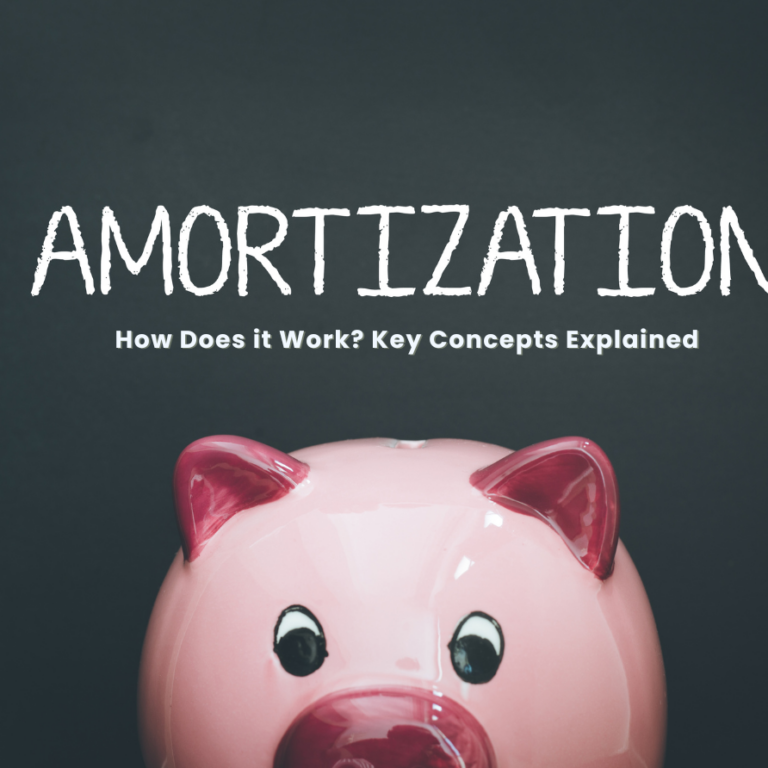Lease Terms Explained: What You Need to Know to Protect Yourself
Introduction to Lease Terms
Definition of Lease Term
A lease term is the duration of a rental agreement between a landlord and a tenant, specifying the period during which the tenant has the right to occupy the property and the landlord is entitled to receive rent. It’s a foundational element of any lease agreement.
Importance of Understanding Lease Terms for Tenants and Landlords
For Tenants:
- Avoiding Unexpected Costs: A clear understanding of lease terms prevents surprises like early termination fees or rent increases.
- Planning for Future Moves: Knowing the lease term helps tenants plan their moves and avoid breaking the lease prematurely, which could result in penalties.
- Understanding Rights and Responsibilities: Lease terms outline the tenant’s rights and obligations, such as the right to quiet enjoyment and the responsibility to maintain the property.
For Landlords:
- Ensuring Rent Income: A well-defined lease term guarantees a consistent income stream for the landlord.
- Protecting Property: Lease terms can include provisions that protect the landlord’s property from damage or misuse by the tenant.
- Managing Tenant Turnover: Understanding lease terms helps landlords plan for tenant turnover and the associated costs of finding new tenants.
Overview of Lease Agreements
A lease agreement is a legally binding contract that outlines the terms and conditions of a tenancy. It typically includes:
- Lease Term: The duration of the lease (e.g., month-to-month, one year, or a longer fixed term).
- Rent Amount: The amount of rent the tenant must pay, including any additional fees or charges.
- Security Deposit: A deposit to ensure the tenant’s performance of the lease terms and to cover potential damages.
- Maintenance Responsibilities: Specifies who is responsible for maintaining the property, such as repairs, cleaning, and landscaping.
- Pet Policy: Outlines whether pets are allowed, any restrictions, and any associated fees.
- Utilities: Indicates which utilities are included in the rent and which the tenant is responsible for paying.
- Termination Clause: Specifies the conditions under which the lease can be terminated, such as expiration, early termination, or default.
- Dispute Resolution: Outlines the procedures for resolving disputes between the landlord and tenant, such as mediation or arbitration.
Key Terms and Definitions Related to Lease Terms
Fixed-Term Lease vs. Month-to-Month Lease
| Type of Lease | Description |
|---|---|
| Fixed-Term Lease | A lease with a specific start and end date. This offers stability for both the landlord and tenant, as the lease term is predetermined. Example: A one-year lease. |
| Month-to-Month Lease | A lease that automatically renews each month unless either party terminates it with proper notice. This provides more flexibility, as either party can terminate it with a month’s notice. |
Renewal and Extension Clauses
- Renewal Clause: A provision in a lease that allows the tenant to extend the lease for a specified period under certain conditions. This provides continuity for the tenant and can be beneficial for the landlord as well.
- Extension Clause: Similar to a renewal clause, but may have different terms or conditions. For example, an extension clause might allow for a shorter renewal period or require a rent increase.
Early Termination Clause
- Early Termination Clause: A provision in a lease that outlines the conditions under which the tenant can terminate the lease early. This may include penalties or fees, such as a portion of the remaining rent or a cleaning fee.
Notice Periods: What They Mean and Why They Matter
| Category | Description |
|---|---|
| Notice Periods | The amount of time required to notify the other party of intent to terminate or renew the lease. This ensures that both parties have sufficient time to plan for the transition. |
| Planning | They allow both parties to plan for the future, such as finding a new tenant or a new place to live. |
| Avoiding Penalties | Failure to provide proper notice may result in penalties or fees. |
| Legal Compliance | Notice periods are often required by law. |
Historical Context of Lease Terms
Evolution of Lease Agreements Over Time
Lease agreements have evolved significantly over time, influenced by historical, economic, and social factors. Here’s a more detailed breakdown:
Ancient Civilizations:
- Land Ownership: Early civilizations recognized the concept of land ownership and the right to lease or rent it. For example, in ancient Mesopotamia, land was often granted to individuals in exchange for services or taxes.
- Agricultural Leases: Agricultural leases were common, with farmers renting land from landowners in exchange for a share of the crops or a fixed rent.
Medieval Europe:
- Feudal System: The feudal system, prevalent in medieval Europe, involved land grants from lords to vassals in exchange for loyalty and military service. Vassals, in turn, often leased land to tenants, who were obligated to pay rent and provide services.
- Manorial System: The manorial system, a type of feudalism, involved a lord owning a manor with surrounding lands and peasants who worked the land in exchange for housing and protection.
Industrial Revolution:
- Urbanization: The Industrial Revolution led to rapid urbanization, as people migrated to cities in search of jobs. This increased demand for rental housing.
- Standardized Leases: To meet the growing demand, standardized lease agreements began to emerge. These contracts outlined the terms and conditions of the tenancy, including rent, maintenance responsibilities, and termination procedures.
Modern Era:
- Legal Developments: Laws and regulations governing leases have evolved to protect tenant rights and address changing societal needs. For example, the Fair Housing Act in the United States prohibits discrimination in housing based on protected characteristics.
- Economic Factors: Economic conditions, such as recessions and booms, have influenced lease terms and rental rates. During economic downturns, rental markets may soften, leading to lower rents and longer lease terms. Conversely, during economic booms, rental markets can become competitive, resulting in higher rents and shorter lease terms.
Historical Practices in Leasing: A Comparative View

Changes in Lease Terms in Response to Economic Conditions
- Economic Booms: During periods of economic growth, rental markets can become competitive, leading to higher rents and shorter lease terms. Landlords may be more likely to offer shorter leases to maximize their rental income.
- Economic Recessions: During economic downturns, rental markets may soften, resulting in lower rents and longer lease terms. Landlords may be more willing to offer longer leases to attract tenants and maintain occupancy rates.
- Government Policies: Governments can influence lease terms through policies such as rent control or eviction protections. Rent control laws limit rent increases, while eviction protections make it more difficult for landlords to evict tenants.
Types of Lease Terms

Agricultural Lease Terms
| Type | Description |
|---|---|
| Cash Rent | Offers a straightforward rental agreement. |
| Risk Management | Tenant bears the full risk of crop failures or market fluctuations. |
| Flexibility | Can be easily adjusted to reflect changes in market conditions. |
| Crop Share | Landlord and tenant share the risks and rewards of farming. |
| Potential Higher Returns | Tenant may benefit from increased crop yields or favorable market conditions. |
| Complexity | Requires careful negotiation and monitoring of crop production. |
| Livestock Share | Landlord and tenant share the investment in livestock. |
| Shared Profits | Landlord and tenant share the profits from livestock sales. |
| Management Challenges | Requires effective management of livestock and potential health risks. |
Specialized Lease Terms
| Lease Type | Details |
|---|---|
| Student Housing Leases | Often include provisions for specific student needs. |
| Summer Subletting | Allows tenants to sublet their units during summer months. |
| Early Termination | May allow tenants to terminate the lease early under certain conditions. |
| Furnished Units | Many student housing units are furnished for convenience. |
| Vacation Rentals | Typically short-term leases with additional fees and conditions. |
| Cleaning Fees | To cover the cost of cleaning the unit after each stay. |
| Damage Deposits | To protect the landlord from damages caused by guests. |
| Minimum Stay Requirements | May require a minimum number of nights for a rental. |
| Mobile Home Leases | Govern the rental of land for a mobile home, often including additional costs. |
| Site Fees | Monthly fees for the rental of the land. |
| Utility Connections | Fees for connecting to utilities such as water, electricity, and sewer. |
| Property Maintenance | Responsibilities for maintaining the mobile home and surrounding area. |
Legal Considerations Surrounding Lease Terms
Key Legal Regulations Affecting Lease Terms
- Fair Housing Act: Prohibits discrimination in housing based on protected characteristics, including race, color, religion, national origin, sex, disability, and familial status. Violations can result in significant penalties for landlords.
- Security Deposit Laws: Vary by jurisdiction, but typically set limits on the amount of security deposits, require proper holding of funds, and outline procedures for returning the deposit. Landlords must follow these laws to avoid legal consequences.
- Rent Control Laws: In some areas, limit rent increases to protect tenants from excessive costs. These laws can affect the terms of lease agreements, particularly regarding rent payments.
- Landlord-Tenant Laws: Provide specific rights and responsibilities for landlords and tenants, including habitability standards, maintenance obligations, and dispute resolution procedures. These laws vary by jurisdiction and can significantly impact the terms of lease agreements.
Rights and Responsibilities of Tenants and Landlords
Tenant Rights:
- Habitability: Landlords must provide a safe, sanitary, and habitable living space. This includes ensuring that the property is free from major defects that affect the health or safety of tenants.
- Quiet Enjoyment: Tenants have the right to enjoy the property without unreasonable interference from the landlord or other tenants. This includes the right to privacy and the ability to use the property as intended.
- Security Deposit Return: Landlords must return the security deposit within a specified timeframe, minus any deductions for damages or unpaid rent. Tenants have the right to dispute any deductions made by the landlord.
Landlord Responsibilities:
- Maintenance: Landlords are generally responsible for maintaining the common areas of the property and addressing major repairs.
- Repairs: Landlords must respond to tenant requests for repairs in a timely manner. Failure to address repairs can lead to legal action by tenants.
- Security Deposit Return: Landlords must return the security deposit within a specified timeframe, minus any deductions for damages or unpaid rent. Landlords must provide documentation to support any deductions.
The Role of Local and State Laws in Lease Agreements
Lease agreements must comply with local and state laws. These laws can vary significantly, so it’s important to consult with legal counsel to ensure that your lease agreement is legally sound. Failure to comply with local and state laws can result in legal consequences for both landlords and tenants.
Understanding Legal Consequences for Lease Violations
Both tenants and landlords can face legal consequences for violating lease terms. These consequences may include:
- Eviction: Landlords can evict tenants for violating lease terms or failing to pay rent. However, landlords must follow proper eviction procedures and comply with applicable laws.
- Damages: Tenants may be liable for damages caused to the property. Landlords can seek compensation for any damages caused by tenants.
- Financial Penalties: Both tenants and landlords may face financial penalties for violating lease terms. These penalties can include late fees, breach of contract damages, or attorney’s fees.
Standard Lease Terms and Their Implications
Duration of Lease: Common Lengths and Their Implications
- Month-to-Month: Offers flexibility for both parties but can lead to frequent rent increases.
- One-Year: Provides stability for both parties and may offer lower rental rates.
- Longer Terms: May offer even lower rental rates but can limit the tenant’s flexibility.
Security Deposits: Terms, Limits, and Return Policies
- Amount: Security deposits are typically a portion of one or two months’ rent.
- Limits: Some states have limits on the amount of security deposits that landlords can collect.
- Return: Landlords must return the security deposit within a specified timeframe, minus any deductions for damages or unpaid rent. Landlords must provide documentation to support any deductions.
Rent Payment Terms: Due Dates and Accepted Payment Methods
- Due Dates: Rent is typically due on the first of the month.
- Payment Methods: Landlords may accept cash, checks, or electronic payments.
Maintenance Responsibilities: Who Is Responsible for What
- Landlord Responsibilities: Landlords are generally responsible for maintaining the common areas of the property and addressing major repairs, such as those affecting the structural integrity of the building.
- Tenant Responsibilities: Tenants are generally responsible for maintaining their own units and reporting any maintenance issues to the landlord. This includes minor repairs, such as fixing leaky faucets or replacing light bulbs.
Lease Negotiation Process
How to Negotiate Lease Terms: Tips and Best Practices
- Research: Gather information about local rental market conditions, comparable properties, and legal requirements.This will help you understand the fair market value of the rental property and identify potential areas for negotiation.
- Prepare: Create a list of desired terms and be prepared to negotiate. Consider your priorities and be flexible in your approach.
- Communicate: Clearly express your needs and be open to compromise. Avoid making demands or ultimatums, as this can hinder negotiations.
- Document: Ensure all agreed-upon terms are documented in writing to avoid misunderstandings. This will protect your rights and provide a clear record of the lease agreement.
Common Lease Terms Open to Negotiation
- Rent Amount: Negotiate the monthly rent payment based on the fair market value of the property and your budget.
- Security Deposit: Discuss the amount of the security deposit and the terms for its return. Consider whether the landlord requires a larger security deposit due to your credit history or other factors.
- Maintenance Responsibilities: Negotiate who is responsible for specific maintenance tasks, such as repairs, cleaning, and landscaping.
- Pet Policy: If you have pets, discuss any restrictions or fees associated with them. Be prepared to negotiate for more favorable pet terms if possible.
- Utilities: Negotiate which utilities are included in the rent and which the tenant is responsible for. Consider the cost of utilities in your area and your budget.
- Renewal Options: Discuss the terms of any renewal options, such as the length of the renewal and any rent increases.
Strategies for Ensuring Favorable Lease Terms
- Be Informed: Research local rental market conditions and understand your rights as a tenant. This knowledge will give you a stronger negotiating position.
- Be Prepared: Prepare a list of questions and be ready to negotiate. The more prepared you are, the more likely you are to achieve favorable terms.
- Be Flexible: Be open to compromise and consider the landlord’s perspective. While you may not get everything you want, you can often negotiate a fair deal.
- Get Everything in Writing: Ensure that all agreed-upon terms are documented in a written lease agreement. This will protect your rights and prevent misunderstandings.
The Importance of Written Agreements in Lease Negotiations
A written lease agreement is essential to protect the rights of both the tenant and the landlord. It provides a clear record of the terms of the tenancy and can help resolve disputes. Without a written agreement, it can be difficult to prove the terms of the lease and enforce your rights.
Ending a Lease: Terms and Procedures
Lease Expiration: What Happens at the End of a Lease Term
- Renewal or Termination: At the end of a lease term, the tenant must either renew the lease or vacate the property. If the tenant chooses to renew, the landlord may require a new lease agreement with updated terms.
- Notice Requirements: Both the tenant and the landlord may need to provide notice of their intentions. The required notice period can vary depending on local laws and the terms of the lease.
Renewal Options: How to Approach Lease Renewals
- Negotiate Terms: If the tenant wants to renew the lease, they can negotiate new terms with the landlord. This may include discussing rent increases, maintenance responsibilities, or other lease provisions.
- Consider Rent Increases: Be prepared for the possibility of a rent increase. Landlords may raise the rent to reflect changes in market conditions or to cover increased operating costs.
- Review Lease Terms: Carefully review the terms of the renewal agreement to ensure that they are fair and reasonable.
Early Termination of Lease: Rights and Consequences
- Penalties: If a tenant terminates a lease early, they may be subject to penalties, such as a portion of the remaining rent or a cleaning fee. These penalties are often outlined in the lease agreement.
- Landlord’s Rights: Landlords may have the right to re-rent the property and recover any lost rent from the tenant. However, landlords must follow proper eviction procedures and comply with applicable laws.
Moving Out: Procedures and Responsibilities
- Notice: Tenants must provide proper notice to the landlord before moving out. The required notice period can vary depending on local laws and the terms of the lease.
- Property Condition: The tenant is responsible for leaving the property in good condition, minus normal wear and tear. Any damage caused by the tenant may be deducted from the security deposit.
- Security Deposit: The landlord must return the security deposit within a specified timeframe, minus any deductions for damages or unpaid rent. Tenants have the right to dispute any deductions made by the landlord.
- Utilities: Tenants should ensure that all utilities are disconnected and paid in full before moving out.
Modifications to Lease Terms
How to Amend a Lease Agreement Legally
- Written Amendment: Any modification to a lease agreement must be made in writing and signed by both the landlord and the tenant. This ensures that both parties have a clear understanding of the changes and can refer back to the written document for reference.
- Consideration: There must be consideration for the amendment, meaning both parties must receive something of value in exchange for agreeing to the modification. This could be a change in rent, a modification to the lease term, or other benefits.
- Consult Legal Counsel: It is advisable to consult with an attorney to ensure that the amendment is legally sound and protects your rights. An attorney can help you draft the amendment, review the terms, and address any potential legal issues.
The Importance of Written Modifications
A written modification is essential to avoid misunderstandings and disputes between the landlord and the tenant. It provides a clear record of the changes to the lease agreement and can be used as evidence in case of a dispute.
Understanding Lease Addendums: Purpose and Use
A lease addendum is a document that modifies or adds to an existing lease agreement. It is often used to address changes in circumstances or to include additional terms that were not included in the original lease. For example, a lease addendum could be used to:
- Modify the rent amount
- Change the lease term
- Add or remove pets
- Address maintenance responsibilities
- Modify the security deposit
Potential Risks of Modifying Lease Terms
- Breach of Contract: If the landlord or tenant fails to comply with the modified terms, they may be in breach of contract. This could lead to legal consequences, such as eviction or financial penalties.
- Legal Consequences: Violations of lease terms can result in legal action. It is important to ensure that any modifications to the lease agreement are legal and comply with applicable laws.
Lease Terms in Different Jurisdictions
Variations in Lease Terms by State
Lease terms can vary significantly between states due to differences in laws, regulations, and market conditions. Some key areas of variation include:
- Security Deposit Laws: The amount of the security deposit, how it is held, and the procedures for returning it can vary by state. Some states may have limits on the amount of the security deposit, while others may require landlords to hold the deposit in a separate account.
- Rent Control Laws: Some states have rent control laws that limit rent increases. These laws can affect the terms of lease agreements, particularly regarding rent payments.
- Eviction Laws: The procedures for evicting a tenant can vary significantly between states. Landlords must follow specific procedures and comply with applicable laws when evicting a tenant.
- Maintenance Responsibilities: The responsibilities of landlords and tenants for maintenance can differ between states. In some states, landlords may be required to maintain the property in a habitable condition, while in others, tenants may be responsible for minor repairs.
International Perspectives on Lease Terms
Lease terms can also vary significantly between countries. Factors that can influence lease terms include:
- Cultural Norms: Different cultures may have different expectations regarding lease terms. For example, in some cultures, it may be more common for tenants to have a longer lease term, while in others, shorter leases may be more common.
- Legal Systems: The legal systems of different countries can vary significantly, affecting the rights and responsibilities of landlords and tenants. For example, some countries may have stronger tenant protection laws than others.
- Economic Conditions: Economic conditions can also influence lease terms, particularly in terms of rent levels and the availability of rental housing. During economic downturns, rental markets may be softer, leading to lower rents and longer lease terms.
Common Trends in Lease Agreements Across Jurisdictions
Despite the variations between jurisdictions, there are some common trends in lease agreements:
- Duration of Lease: Leases are typically for a fixed term, such as one year or more.
- Rent Payment Terms: Rent is typically due on a monthly basis.
- Security Deposits: Landlords often require a security deposit to ensure the tenant’s performance of the lease terms.
- Maintenance Responsibilities: Landlords are generally responsible for maintaining the common areas of the property, while tenants are responsible for maintaining their own units.
Impacts of Lease Terms on Tenants and Landlords
How Lease Terms Affect Tenant Rights and Stability
Habitability
Lease terms can impact a tenant’s right to a habitable living space. A well-written lease outlines the landlord’s responsibilities for maintaining the property in a safe, sanitary, and livable condition. This includes addressing major defects such as structural issues, plumbing problems, or infestations.
Security Deposit
A lease should specify the security deposit amount, how it is held, and the terms for its return. Clear lease terms protect tenants from unfair deductions and ensure timely refunds.
Quiet Enjoyment
Lease terms protect a tenant’s right to quiet enjoyment. A well-written lease prevents unreasonable interference by the landlord, including excessive noise, harassment, or disturbances.
Rent Increases
Lease terms affect rent increase frequency and limits. A well-drafted lease may restrict excessive rent hikes or require advance notice, protecting tenants from sudden financial strain.
Financial Implications for Landlords
- Rent Income: Lease terms can significantly impact a landlord’s rental income. A longer lease term can provide more stability for the landlord, as they can rely on a consistent income stream for a longer period. Shorter leases may offer more flexibility for landlords, but they also involve the risk of increased tenant turnover and vacancy costs.
- Maintenance Costs: Lease terms can also affect a landlord’s maintenance costs. A well-written lease can clarify who is responsible for maintenance and repairs. This can help to prevent disputes and ensure that maintenance costs are allocated fairly.
- Tenant Turnover: Lease terms can impact the frequency of tenant turnover. A longer lease term can reduce tenant turnover, which can save landlords time and money. Frequent tenant turnover can involve costs such as advertising,screening new tenants, and preparing the unit for new tenants.
The Role of Lease Terms in Landlord-Tenant Relationships
Lease terms play a crucial role in the relationship between landlords and tenants. A well-written lease can help to prevent disputes and ensure a positive relationship by:
- Establishing Clear Expectations: A clear lease outlines the rights and responsibilities of both parties, helping to prevent misunderstandings and conflicts.
- Providing a Framework for Dispute Resolution: A lease can include provisions for resolving disputes, such as mediation or arbitration. This can help to avoid costly legal proceedings.
- Building Trust: A fair and equitable lease can help to build trust between landlords and tenants. When both parties feel that their rights are protected, they are more likely to have a positive relationship.
Potential for Disputes: Common Areas of Conflict
- Maintenance Issues: Disputes often arise over maintenance issues, such as repairs or cleaning. Landlords may be reluctant to address maintenance issues promptly, while tenants may feel that their living conditions are not adequate.
- Rent Increases: Rent increases can be a source of conflict between landlords and tenants. Tenants may feel that rent increases are unfair or excessive, while landlords may need to increase rents to cover rising costs.
- Security Deposits: Disputes can also arise over the return of security deposits. Landlords may deduct money from the security deposit for damages or unpaid rent, while tenants may dispute the deductions.
- Noise Complaints: Noise complaints are a common source of conflict between tenants and landlords. Tenants may complain about noise from other tenants or from the landlord’s property, while landlords may need to address noise complaints to maintain a peaceful living environment.
- Pet Issues: Disputes can arise over pets, such as whether pets are allowed or whether there are additional fees associated with pets. Landlords may have concerns about pet damage or noise, while tenants may feel that they have the right to have pets in their rental unit.
Lease Terms and Tenant Rights
Understanding Tenant Rights Under Lease Agreements
- Habitability: Tenants have the right to a habitable living space. This means that the property must be safe, sanitary,and fit for human habitation. Landlords are responsible for maintaining the property in a habitable condition, which includes addressing issues such as structural defects, plumbing problems, and infestations.
- Quiet Enjoyment: Tenants have the right to enjoy the property without unreasonable interference from the landlord or other tenants. This includes the right to privacy and the ability to use the property as intended. Landlords must take reasonable steps to prevent disturbances from other tenants or from the landlord’s property.
- Security Deposit Return: Tenants have the right to the return of their security deposit after the lease ends, minus any deductions for damages or unpaid rent. Landlords must provide documentation to support any deductions and must return the remaining balance to the tenant in a timely manner.
- Privacy: Tenants have the right to privacy in their rental unit. Landlords may not enter the unit without the tenant’s permission, except in emergency situations.
How Lease Terms Protect Tenants from Unfair Practices
Lease terms can protect tenants from unfair practices by:
- Outlining the Landlord’s Responsibilities: A well-written lease will outline the landlord’s responsibilities for maintaining the property and addressing tenant complaints. This helps to ensure that landlords are held accountable for their obligations.
- Providing Notice Requirements: Lease terms can provide notice requirements for rent increases, evictions, and other important matters. This gives tenants time to prepare for changes and to seek legal advice if necessary.
- Limiting Rent Increases: Some leases may include provisions limiting rent increases. This can help to protect tenants from excessive rent increases.
- Protecting Tenant Security Deposits: Lease terms can protect tenant security deposits by specifying how the deposit will be held and how it will be returned. This helps to prevent landlords from unfairly withholding security deposits.
The Role of Legal Aid and Tenant Advocacy Groups
Legal aid and tenant advocacy groups can provide assistance to tenants who are facing legal issues related to their lease agreements. These organizations can provide legal advice, representation, and other resources to help tenants protect their rights. Tenants who are facing eviction, disputes over security deposits, or other legal issues should consider seeking assistance from a legal aid or tenant advocacy group.
Lease Term Trends and Future Directions
Emerging Trends in Lease Agreements
- Flexible Leases: Short-term leases and month-to-month leases are becoming increasingly popular, offering flexibility for tenants who may need to relocate frequently or for landlords who want to maximize their rental income. This trend is particularly evident in urban areas with high levels of job mobility and transient populations.
- Co-living Spaces: Shared living arrangements are becoming increasingly popular, particularly among young professionals and students. These arrangements often involve shorter lease terms and shared amenities, such as kitchens, living rooms, and laundry facilities. Co-living spaces can be a more affordable option for tenants, especially in high-cost housing markets.
- Digital Leasing: The use of technology in leasing is on the rise, with online applications, electronic signatures, and digital document management becoming more common. This can streamline the leasing process for both tenants and landlords, making it more convenient and efficient.
The Impact of the Gig Economy on Leasing Practices
The gig economy has led to increased demand for flexible housing options, such as short-term rentals and co-living spaces. This is because gig workers often have unpredictable schedules and may need to relocate frequently for work. As a result, landlords are increasingly offering shorter lease terms and more flexible rental options to accommodate the needs of this new demographic.
The Future of Lease Terms in a Post-Pandemic World
The COVID-19 pandemic has significantly impacted the housing market and lease terms. Remote work has led to increased demand for suburban and rural housing, while economic uncertainty has made it difficult for some tenants to afford rent. As the economy recovers, lease terms may continue to evolve to meet the changing needs of tenants and landlords. For example, landlords may offer more flexible lease terms to attract tenants, while tenants may be more interested in shorter leases to maintain flexibility.
Technology’s Role in Changing Lease Agreements
Technology is playing an increasingly important role in lease agreements. Digital signatures, online applications, and digital document management are becoming more common. These technologies can streamline the leasing process for both tenants and landlords, making it more efficient and convenient. For example, tenants can apply for rentals online, electronically sign lease agreements, and submit maintenance requests through online portals. Landlords can use digital tools to manage their properties, screen tenants, and collect rent payments.
Case Studies and Real-World Examples
Examples of Effective Lease Terms
- Clear and Concise Language: Effective lease terms are easy to understand and avoid legal jargon. This helps to prevent misunderstandings and disputes between tenants and landlords.
- Fair and Balanced: Effective lease terms are fair to both the tenant and the landlord. They should not favor one party over the other.
- Comprehensive: Effective lease terms cover all relevant aspects of the tenancy, including rent, maintenance, security deposits, and termination procedures.
Common Mistakes in Lease Agreements and Their Consequences
- Unclear Language: Unclear language can lead to misunderstandings and disputes. For example, if the lease agreement is unclear about who is responsible for maintaining the property, it can lead to disagreements between the landlord and the tenant.
- Unfair Terms: Unfair terms can give one party an unfair advantage over the other. For example, a lease that requires the tenant to pay for excessive cleaning fees or to agree to a non-compete clause may be considered unfair.
- Failure to Follow Legal Requirements: Failing to comply with legal requirements can result in legal consequences. For example, if a landlord fails to comply with local eviction laws, the tenant may be able to challenge the eviction.
Lessons Learned from Disputes Involving Lease Terms
- The Importance of Written Agreements: Written lease agreements can help to prevent disputes and provide a clear record of the terms of the tenancy. It is important for both landlords and tenants to have a written lease agreement in place.
- The Importance of Communication: Open and honest communication between landlords and tenants can help to resolve disputes before they escalate. It is important for both parties to communicate clearly and respectfully.
- The Importance of Legal Advice: If you are involved in a lease dispute, it is important to seek legal advice. An attorney can help you understand your rights and protect your interests.
Conclusion
Summary of Key Takeaways on Lease Terms
- Understand the Terms: Carefully review and understand all terms of the lease agreement. This includes the duration of the lease, rent amount, security deposit, maintenance responsibilities, utilities, and termination procedures.
- Negotiate Favorable Terms: Use negotiation strategies to secure favorable terms. Be prepared to discuss and negotiate on issues such as rent, security deposits, maintenance responsibilities, and renewal options.
- Comply with Legal Requirements: Ensure that the lease agreement complies with all applicable local, state, and federal laws. This includes understanding and following laws related to security deposits, rent control, discrimination, and eviction.
- Communicate Effectively: Open and honest communication is essential for a positive landlord-tenant relationship.Be proactive in addressing any concerns or issues that arise.
- Address Issues Promptly: Resolve any issues or disputes promptly to avoid escalation. If you are unable to resolve an issue on your own, consider seeking mediation or legal advice.
Final Thoughts on the Importance of Understanding Lease Terms
Understanding lease terms is crucial for both tenants and landlords to ensure a positive and successful leasing experience. By understanding your rights and responsibilities, you can:
- Protect Your Interests: Ensure that your rights are protected and that you are treated fairly.
- Avoid Disputes: Prevent misunderstandings and conflicts by having a clear understanding of the terms of the lease.
- Create a Positive Relationship: Build a positive relationship with your landlord or tenant by communicating effectively and respecting each other’s rights.
- Minimize Legal Issues: By understanding your rights and obligations, you can reduce the risk of legal disputes and the associated costs.
Encouraging Responsible Leasing Practices for Tenants and Landlords
- Educate Yourself: Both tenants and landlords should educate themselves about lease terms and their rights and responsibilities. This can be done through reading lease agreements, consulting with legal professionals, or attending educational workshops.
- Communicate Effectively: Open and honest communication is essential for a positive landlord-tenant relationship. Both parties should be willing to listen to each other, address concerns promptly, and work together to resolve any issues.
- Resolve Disputes Peacefully: If a dispute arises, try to resolve it amicably through negotiation or mediation. Legal action should be considered as a last resort.
- Seek Legal Advice: If you are unsure about your rights or have a dispute, consult with an attorney. An attorney can provide legal advice and representation to help you protect your interests.






